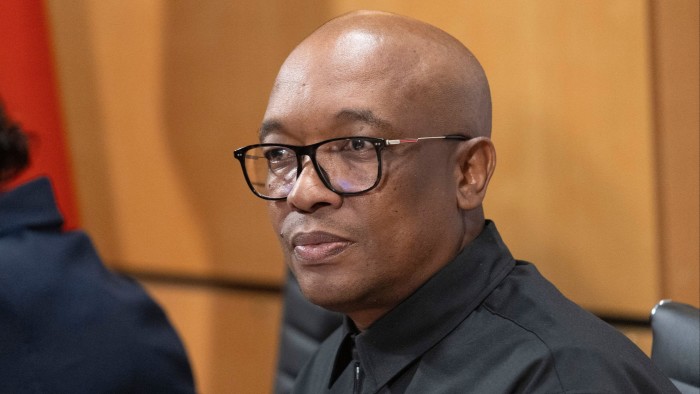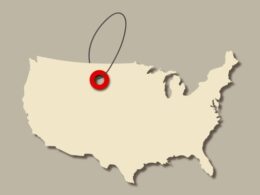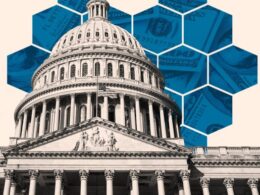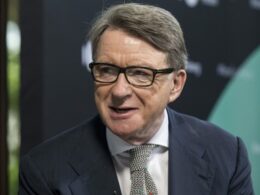South Africa’s trade minister has said African nations should pivot towards markets including China after US President Donald Trump’s tariff blitzkrieg in effect “nullified” a deal that offered US trade concessions to several African countries.
Parks Tau said the African Growth and Opportunity Act with the US in effect no longer applied in light of Trump’s tariff decision, meaning African nations should shift their trade towards fast-growing markets, including countries from the global south.
“We have to ensure we diversify and expand the people and countries with which we trade,” he said. “In the east, an appetite has been expressed [and] citrus was included in the products that we would now be able to send into the Chinese markets.”
South African citrus exports could be one the biggest casualties of a new 31 per cent tariff imposed on South African goods by Trump.
South Africa exports $13.7bn of agricultural products annually, with $500mn going to the US. “Citrus is the most exposed agricultural product to these new tariffs,” says Wandile Sihlobo, chief economist of South Africa’s Agricultural Business Chamber.
Trump hit several African countries with high tariffs on Wednesday, including Lesotho with 50 per cent, Madagascar with 47 per cent, Mauritius with 40 per cent, and Botswana with 37 per cent.
South Africa, the continent’s most industrialised nation, faces a 31 per cent tariff rate under the scheme that takes effect next week.
All of these states trade with the US under Agoa, a deal first enacted under Bill Clinton in 2000 under which 32 African countries sell products tariff-free to the US.
The pact is due to expire in September, and African nations, including South Africa, have been frantically lobbying for it to be extended.
Tau said: “To the extent that the executive orders essentially said that [Agoa] legislation will not be applicable, we work on the basis it has nullified the Agoa benefits.”
Nearly half of South Africa’s benefits from Agoa accrue to its vehicle manufacturers, saving car buyers in America $47mn in duties, according to Johannesburg-based XA Global Trade Advisors.
However, Tau said reciprocal tariffs against the US would be counter-productive. “It runs the risk of a race to the bottom,” he said. “There are all sorts of knee-jerk decisions to the announcements made and I think it’s a risky thing to do.”
South Africa’s mining minister Gwede Mantashe in February floated the idea that African countries should consider “withholding minerals from the US”.
But countries including the Democratic Republic of Congo have instead sought deals with Washington based on supplying minerals such as cobalt, coltan and copper, which are required for the energy transition.
Nearly half of South Africa’s exports to the US consist of critical minerals, including platinum, which will be exempted from Trump’s import tariff.
The heavy US tariffs on South Africa come at a time when Pretoria, which is already in the midst of a budget crisis, is embroiled in an explosive row with Washington.
Washington last month expelled Ebrahim Rasool, South Africa’s ambassador to the US, in what was seen as retaliation for Pretoria’s case against Israel accusing it of genocide at the International Court of Justice.
Washington has also blamed South Africa for introducing land expropriation legislation that the Trump administration says threatens white farmers, and for implementing rules that are slowing the entry of Elon Musk’s Starlink satellite internet service into the country.
This week two US lawmakers introduced a bill to Congress proposing a wholesale review of the US relationship with South Africa.
Republican Ronny Jackson, one of the bill’s sponsors, claimed the country had “brazenly abandoned its relationship with the United States to align with China, Russia, Iran, and terrorist organisations”.
The bill, he said, would “help advance President Trump’s foreign policy agenda by giving him the tools necessary to impose sanctions on corrupt South African government officials”.
Ronald Lamola, South Africa’s international relations minister, said his country would not adjust its policies to please Washington. This is a “sovereign matter that South Africa needs to continue to be firm on, and be principled on”, he said.
Donald MacKay, chief executive of XA Global Trade Advisors, said while Agoa did not cost the US much, it was a key source of soft political power. Last year, African countries accounted for less than 1 per cent of all US imports, while US companies saved just $134mn in import duties under Agoa.
Source link









